RAISE E-News, Vol. 3, No. 3
JUNE 2017
|
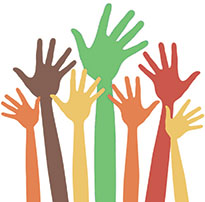
Welcome to the RAISE e-news letter, designed to identify and share resources that the Rehabilitation Services Administration Parent Training and Information Centers (RSA-PTI) can use and share with families.
Executive Editor: Peg Kinsell
Visit our Website:
|
About RAISE
RAISE, the National Resources for Access, Independence, Self-Advocacy and Employment is a user-centered technical assistance center that understands the needs and assets of the RSA-PTIs, coordinates efforts with the TA provided by PTI centers and involves RSA-PTIs as key advisors and partners in all product and service development and delivery.
RAISE is funded by the US Department of Education to provide technical assistance to, and coordination of, the 7 PTI centers (RSA-PTIs). It represents collaboration between the nation's two Parent Technical Assistance Centers (PTAC) and the seven Regional PTACs.
Find your Parent Technical Assistance Center (PTAC)
|
|
 |
"My father used to have an expression. He'd say, 'Joey, a job is about a lot more than a paycheck. It's about your dignity. It's about respect. It's about your place in your community.'"
- Former Vice President of the United States, Joe Biden
|
PERSPECTIVE:
Meet Nati Amos de Huerta...

We love the humor and insight Nati offers at a recent TEDx talk about disability in the workplace.
This month, we focus our attention on tools and resources you can share with schools, transition leaders, and families to help them in their efforts to assist students in learning and practicing financial management skills. Developing financial capability has been recognized as an important part of preparing youth for transition to adulthood, including job training under the Workforce Innovation and Opportunity Act.
|
 RESOURCES: RESOURCES:
YES! Center
YES! Check out this new website created by one of our RAISE partners, TASH, together with the Youth Employment Solutions (YES!) Center. The YES! Center's mission is to improve competitive, integrated employment outcomes for transition-aged youth and young adults with intellectual and developmental disabilities.
|
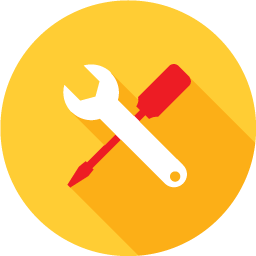
TOOLS THAT WORK:
Taking Charge
of Your Money
This simple 10-page Info Brief, produced by the National Collaborative on Workforce and Disability for Youth, introduces students to financial capability and covers five key areas of money management: Earning, Saving and Investing, Protecting, Spending, and Borrowing. It provides a starting point for youth to learn about and develop financial capability so that they can make smart decisions about managing money now and in the future.
|
 THE ABLE ACT: THE ABLE ACT:
A Tool for Financial Stability and Employment Outcomes
The Nation's first ABLE programs have been in place for roughly a year. As a result of the Achieving a Better Life Experience (ABLE) Act, qualified individuals with disabilities can now save funds in a tax advantaged savings account (an ABLE account) for the purposes of offsetting disability-related expenses. Moreover, the funds saved in the account, and disbursed for qualified disability-related expenses, will not be taken into consideration when determining eligibility for publicly funded benefits such as Social Security and Medicaid.
Qualified disability-related expenses include those related to the beneficiary's disability and those that help the beneficiary increase or maintain health, independence, and/or quality of life.
A qualified disability-related expense could include expenses which assist the beneficiary with obtaining and/or maintaining competitive integrated employment. Here are a few examples of employment-related expenses that could be paid for with funds contributed to an ABLE account:
- Job coaching or additional job coaching.
- Costs associated with earning certificates, accreditations, and/or job-related trainings.
- Interview prep and resume development.Transportation to and from the beneficiary's place of employment.
- Financial management education and assistance.
The LEAD Center, in collaboration with the ABLE National Resource Center, recently hosted a webinar to show how individuals with disabilities and their families can use ABLE Accounts to increase financial stability and produce more positive employment outcomes. The webinar demonstrates how the provisions in the ABLE Act can allow people with disabilities to achieve competitive integrated employment, begin to save money without fear of loss of SSI and Medicaid eligibility, and set longer-term goals for financial stability.
|
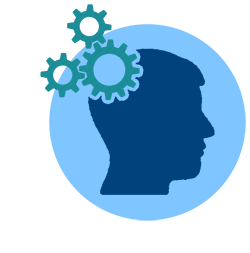 GET TECHNICAL: GET TECHNICAL:
Students who are comfortable with technology may find budgeting software like Quicken and online banking services helpful in managing their money. These budgeting and money apps can also be a resource:
- Level Money lets users plan ahead for essentials like rent and bills, and set a target savings goal. The money that's left over is called 'Spendable'. It essentially replaces a bank balance with a Spendable number for the month. With this number, students know how much they can comfortably spend on non-essentials, like coffee or eating out.
- iSpend is an easy to use tool that helps users keep track of personal expenses from any smartphone.
- GoodBudget can be used to help a young person stay on track with a budget that synchs between mobile devices so teachers and parents can check in.
Apps for Sending and Receiving Money:
- Venmo
- PayPal
- Google Wallet
- Square Cash
- Chase QuickPay
|
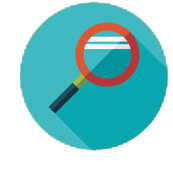 A CLOSER LOOK: A CLOSER LOOK:
Money Skills
It is one thing to earn a paycheck, but another thing altogether to manage the money. Many teens with disabilities lack the knowledge and basic financial skills they need to become more independent. Here are some considerations and strategies that might be part of a transition IEP for a young person with a disability:
- Where is it? Community-based learning should turn the drugstore, grocery store, and department store into a classroom. Students should learn to find items commonly used such as school supplies, hair products, personal products, etc., and should learn how to find these items independently at different stores.
- Extra Credit: Teens and youth should learn about how credit cards work, as well as the risks of using them. Regardless of disability, many teens begin to receive invitations to apply for credit cards by age 18. For some students, it may be a good idea to research and apply for a card with a low credit limit. Discuss with the student what may be charged, and the process of paying the monthly bills, preferably in full, to avoid paying interest while establishing a credit history.
- The Small Print: Students should learn about the kinds of basic contracts they may encounter - rental leases, gym memberships, cell phone agreements, and Internet service contracts. Be sure the student learns about and can respond to sales tactics.
- By the book: Students should learn to develop and use a personal budget that includes anticipated expenses (school lunches, movies, books, in-game purchases, iTunes, entertainment, clothing, snacks, etc.). One concrete way to learn budgeting is through a "budget envelopes" book (found in office supply stores or stationery stores). These books have separate envelopes for each specific budget category so the student can allocate cash in each envelope at the beginning of every week and make a commitment to spend the allotted funds for only the stated purposes.
- Check Mate: Youth should learn how to pay bills and manage a checkbook - duplicate copy checks can help ensure that transactions are recorded.
Learn to Save. We love the actionable information from the National Disability Institute in the Savings Tips For People With Disabilities webinar to help people with disabilities learn to save.
RESOURCE: Teaching money and banking concepts can be a challenge. It is no longer a matter of simply making change or balancing a paper checkbook. If you are coaching others as they work with youth to help them build financial muscles, check out this website resource,
Teaching Teens the True Cost of Charging, developed by Bank of America to help teens better understand how credit cards work.
|
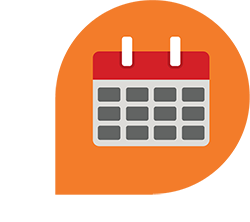 Upcoming Events Upcoming Events
The 27th Annual APSE National Conference
June 20 - 22, 2017, in Portland, OR
Association on Higher Education and Disability (AHEAD) 2017 Conference
July 17 - 22, 2017, in Orlando, FL
The 2017 Annual Conference on Independent Living
July 24 - 27, 2017, in Washington, DC
Learn More >>
PA Community on Transition Conference - Pathways to Success
August 9 - 11, 2017, in State College, PA
Learn More >>
The National Home and Community Based Services (HCBS) Conference
August 28 - 31, 2017, in Baltimore, MD
Learn More >>
|

PARTNER PROFILE:
TransCen is one of the RAISE Center's Partners. TransCen, Inc. is a non-profit organization dedicated to improving educational and employment outcomes for people with disabilities. Their work is driven by the belief that there is a job for everyone who wants one, regardless of the nature of their disability, or other barriers to employment, their need for workplace support and accommodation, or economic circumstances. Associates develop, implement, and research innovative practices regarding school-to-adult life transition, career and workforce development, and inclusive community participation. Click here to learn more: www.transcen.org
|
|